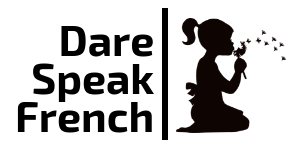Grammar
“It” doesn’t exist in French…
Genders in English is easier than in French and a lot more logical. He/she applies for people and it for things and animals (except exceptions 😉 )
In French there is no “it”… nothing is “neutral”
I guess it’s one of the nightmare you, native anglophones, have : the necessity to learn the gender with each new word!
Now… sometimes, for people, it’s tricky too… but that’s not politically correct to tackle such a subject, is “it”? 😉
Grammar, Musings
Have you noticed that the most used verbs are also the most irregular ones ? It includes the auxiliary verbs, of course.
I guess the reason is that… just like an old pair of comfortable shoes… the more you use them, the more “worn” they become… and the more familiar to people altogether.
That’s when you were born in the country where they use them. The story is different when you are a rookie and you have to learn and remember them 😉
Take heart, there aren’t that many verbs that you’ll need on a regular basis… but the few, well, you’ll have to learn them.
In my Dare Speak French program… I will use them all the time, giving you plenty of opportunities to know them even before you realize 🙂
Grammar
Adjectives… before or after the noun ?
In English, things are rather simple, it’s before and that’s it. You may split hairs when you have more than one adjective : which comes first?
In French, it’s a whole different story… you place them before and/or after the noun but I don’t know of any formal rule for which gets to be before or after. It’s more a matter of usage (a strong one, mind you)… which won’t help you much if you’re not a native French.
Actually, there are some rules based on the nature of the adjective and its strength… plus some adjectives change meaning according to their placement… which might overcomplicate.
The good news is that… even if you put them upside down or tupsy-torvy… as long as their are all there, it’s good enough for you to be understood 😉
Grammar
In English, you have the beings which have genders and the “things” that are… let’s say neutral !
In French everything, being or thing has a gender and we don’t have a neutral !
So apart from living beings having an obvious gender… how do you know the gender of a “thing” ? Well… you don’t, unless you learn it.
OK, that being said, don’t fret. If you get mixed up and use the wrong gender, the probability is that any French on the planet will still understand you. And if there is a doubt when the apparent same word doesn’t have the same meaning when it’s masculine or feminine… the context will make the difference.
I’m not saying here that you should not learn the genders… just don’t worry about it, it will come with practice.
And above all, don’t let genders be a stumbling block in your progress !
